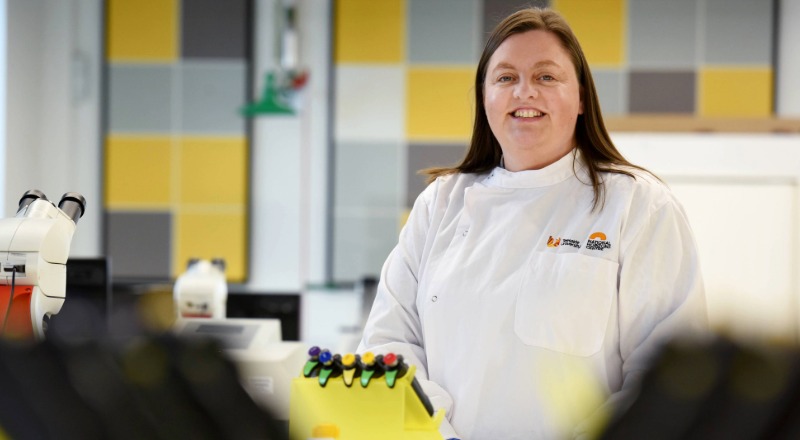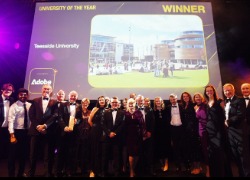The North holds the key to making industries cleaner while delivering economic growth
By
Professor Vikki Rand and Professor Sarah Thompson
In the North, we ‘make things’ - from the industrial engine of Teesside through to Yorkshire’s farming and food heritage. It is easy to see how this region has driven the nation’s economy and powered its growth for generations.

But to achieve the government's ambition of solving significant global challenges by 2035, we need a new kind of thinking, and one that doesn’t rely on fossil fuels, but on biology and clean technologies.
Mayor of York & North Yorkshire Combined Authority, David Skaith, and Mayor of Tees Valley, Ben Houchen, recognised the combined strengths of its regions.
Working alongside partners NEPIC, and UK CPI, and utilising the University of York and Teesside University’s expertise in bioengineering, plant biology, waste and natural materials, they saw that we could, as a collective, create the next generation of products and jobs to secure a better environmental future for the whole of the UK.
We want to make things differently to how we have done before, by creating cleaner, more efficient, and better products for the planet. From new types of plastics made from waste, to sustainable building materials and fuels, the North is the perfect place to turn our scientific breakthroughs into bio-based alternatives to set a new standard.
What’s exciting about this collaboration is that it brings together everything needed to make the bioeconomy work - from the farms and feedstocks that provide the raw materials, to the factories that manufacture and process them, and the markets and societies that need the final products.
It is difficult to find anywhere else in the UK, and perhaps even the world, that can offer such a complete picture - from concept, to design, to production and implementation.
York and North Yorkshire is already home to some of the UK’s leading scientists in sustainable chemistry and agricultural innovation, based at the University of York through its BioYorkshire programme and Centre for Novel Agricultural Products.
Tees Valley, with its strong manufacturing base and Freeport status, has the industrial muscle and the space to scale those ideas up into full production. With a research strategy which places net zero and health and wellbeing at the forefront.
Teesside University is supporting these endeavours through its National Horizons Centre and Net Zero Industry Innovation Centre. Both of these national centres of excellence are creating a legacy of innovation in bioscience and green technology in this region and beyond.
Across the two regions, there are already thousands of businesses working in farming, food, bio-based materials and clean manufacturing - part of a sector that supports over 400,000 jobs.
One of the most promising parts of this work is finding ways to use resources again and again, rather than throwing them away. This means turning agricultural waste, food by-products or captured carbon into something useful. The waste from one industry can become the feedstock for another.
By joining forces, we are showing what’s possible when universities, businesses and local authorities pull in the same direction.
Farmers can benefit too. Instead of simply managing waste, they can sell it on as a valuable resource. For a region with one of the UK’s biggest food and feed processing sectors, that’s a big opportunity.
We already have great examples of the impact our research can have. Scientists are working with industry to improve the performance of new medicines and increase food production, as well as investigating how microorganisms behave during wastewater treatment in order to build digital models to improve anaerobic digestion and generate clean energy. It’s work that makes industries cleaner and more efficient.
As one of Europe’s leading chemical clusters, Teesside, Darlington and Hartlepool are home to major industrial sites such as Wilton International, where organisations like CPI and the Pioneer Group are accelerating the development and scale-up of bio-based technologies.
Teesside University’s Net Zero Industry Innovation Centre and the National Horizons Centre are helping businesses develop clean technologies and bioscience expertise. Facilities like the CPI in Wilton and York’s Biorenewables Development Centre give smaller companies the tools to test and scale their ideas.
Big names like Croda and bp sit alongside a growing network of small and medium-sized enterprises. Together, they form a community where new ideas can be tested and scaled quickly.
This is not just about science, but building a strong and resilient economy. By linking research, farming and manufacturing, we can create skilled jobs and keep investment in the regions that need it most. It’s also about cutting carbon emissions and building industries that last in challenging times.
At its heart, this is a story about regeneration. The North has created big industrial leaps from the steel, coal and chemical industries of the 19th century, to today with sustainable materials, clean energy and biotechnology.
By joining forces, we are showing what’s possible when universities, businesses and local authorities pull in the same direction. Together, we can help the UK build a cleaner industrial future, one that creates jobs, supports farming and protects the environment.
The vision is to make the North a place where biology and industry work side-by-side to solve real problems, and to demonstrate what is possible when universities, businesses and local authorities pull in the same direction. The global transition to a sustainable bioeconomy isn't a minor economic shift; it's the next industrial revolution. And we're proud to say that it's started here in the North.
Professor Vikki Rand is Professor of Translational Medicine at Teesside University and Professor Sarah Thompson is Pro Vice-Chancellor (Research) at University of York.
 Poor health in the North costing the UK billions in lost
...
Poor health in the North costing the UK billions in lost
... Teesside University wins prestigious University of the Year
...
Teesside University wins prestigious University of the Year
... New football academy nurtures young talent
New football academy nurtures young talent